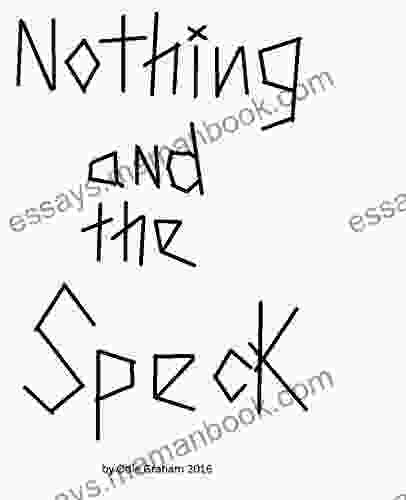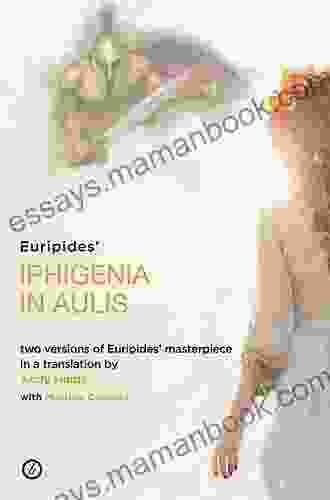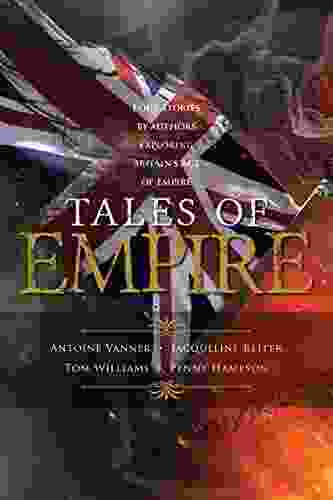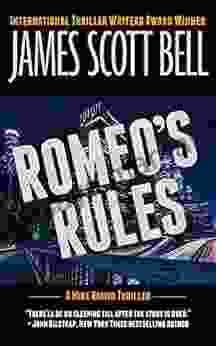Exploring Two Versions of Euripides' Masterpiece in New Verse Translation: A Comparative Analysis

Euripides' 'Medea' stands as one of the most enduring and powerful tragedies of ancient Greek literature. Its timeless themes of betrayal, revenge, and the destructive nature of passion have resonated with audiences for centuries. In recent years, two new verse translations of 'Medea' have garnered critical acclaim, offering contemporary readers fresh insights into this classic work: Anne Carson's 'Medea' (2001) and David Grene's 'Medea' (2003).
4.3 out of 5
| Language | : | English |
| File size | : | 956 KB |
| Text-to-Speech | : | Enabled |
| Enhanced typesetting | : | Enabled |
| Print length | : | 226 pages |
| Screen Reader | : | Supported |
| Paperback | : | 446 pages |
| Item Weight | : | 1.48 pounds |
| Dimensions | : | 5.83 x 1.01 x 8.27 inches |
This article presents a comparative analysis of these two translations, examining their distinct approaches to translating Euripides' text into contemporary English. By exploring their treatment of themes, characters, language, and structure, we aim to highlight the unique strengths and perspectives of each version, ultimately enriching our understanding of this timeless tragedy.
Themes
Carson's translation prioritizes a visceral, emotional interpretation of the play. Her rendering of Medea's rage and despair is particularly striking, as seen in this passage describing Medea's confrontation with Jason:
"I am a wolf...a viper...a Scylla..."
This animalistic imagery conveys the raw, untamed nature of Medea's emotions, emphasizing the play's exploration of the primal forces that drive human behavior.
In contrast, Grene's translation emphasizes the play's more political and social dimensions. His rendering of Medea's speeches highlights her intelligence and strategic cunning, as seen in this passage where she outlines her plan for revenge:
"...I will slay your bride...cut her throat...burn your house down..."
This more calculated and deliberate depiction of Medea's actions foregrounds the play's examination of power dynamics and societal expectations.
Characters
Carson's translation presents a complex and nuanced portrayal of Medea. She captures the character's vulnerability and her capacity for both love and hate, as evident in this passage where Medea expresses her longing for Jason:
"...I would touch his face...embrace his body...kiss his eyes..."
Grene's translation, on the other hand, emphasizes Medea's more vengeful and ruthless aspects. His rendering of her speeches highlights her determination to inflict pain upon those who have wronged her, as seen in this passage where she taunts Jason:
"...I have hurt you more than you can ever hurt me..."
Both translations offer compelling interpretations of Medea's character, highlighting the play's multifaceted exploration of human nature.
Language
Carson's translation is known for its lyrical and experimental language, which captures the emotional intensity of the play. She uses a mix of contemporary colloquialisms and heightened poetic diction, as seen in this passage describing Medea's grief:
"...I am a woman of mourning...ashes in the wind..."
In contrast, Grene's translation adopts a more traditional and formal language, which emphasizes the play's classical origins. His use of elevated vocabulary and syntax lends a sense of gravitas to the text, as seen in this passage where Medea addresses the chorus:
"...O women of Corinth...I beg you...hear me out..."
While both translations effectively convey the play's emotional resonance, their distinct approaches to language reflect differing interpretations of the work's tone and style.
Structure
Carson's translation follows the traditional structure of the Greek play, with a prologue, episodes, and a chorus. However, she incorporates innovative elements, such as the use of stage directions and interjections, which enhance the play's immediacy and emotional impact.
Grene's translation also adheres to the classical structure but places greater emphasis on the play's dramatic pacing. His rendition of the dialogue is more concise and tightly constructed, creating a sense of urgency and inevitability.
Both translations effectively capture the play's dramatic arc, but their distinct approaches to structure influence the overall experience and interpretation of the work.
Anne Carson's and David Grene's new verse translations of Euripides' 'Medea' offer unique and compelling interpretations of this classic tragedy. Carson's translation emphasizes emotional intensity and lyrical language, while Grene's translation foregrounds political and social dimensions, using a more formal and traditional language.
By examining their distinct approaches to themes, characters, language, and structure, we gain a deeper understanding of the play's multifaceted nature. Both translations are valuable contributions to the canon of Greek drama, offering contemporary readers fresh perspectives on this timeless work and enriching our appreciation of its enduring power.
References
* Carson, A. (2001). 'Medea'. New Directions Publishing. * Grene, D. (2003). 'Medea'. University of Chicago Press. * Euripides. (1998). 'Medea'. Translated by Rex Warner. Penguin Classics.
4.3 out of 5
| Language | : | English |
| File size | : | 956 KB |
| Text-to-Speech | : | Enabled |
| Enhanced typesetting | : | Enabled |
| Print length | : | 226 pages |
| Screen Reader | : | Supported |
| Paperback | : | 446 pages |
| Item Weight | : | 1.48 pounds |
| Dimensions | : | 5.83 x 1.01 x 8.27 inches |
Do you want to contribute by writing guest posts on this blog?
Please contact us and send us a resume of previous articles that you have written.
 Top Book
Top Book Novel
Novel Fiction
Fiction Nonfiction
Nonfiction Literature
Literature Paperback
Paperback Hardcover
Hardcover E-book
E-book Audiobook
Audiobook Bestseller
Bestseller Classic
Classic Mystery
Mystery Thriller
Thriller Romance
Romance Fantasy
Fantasy Science Fiction
Science Fiction Biography
Biography Memoir
Memoir Autobiography
Autobiography Poetry
Poetry Drama
Drama Historical Fiction
Historical Fiction Self-help
Self-help Young Adult
Young Adult Childrens Books
Childrens Books Graphic Novel
Graphic Novel Anthology
Anthology Series
Series Encyclopedia
Encyclopedia Reference
Reference Guidebook
Guidebook Textbook
Textbook Workbook
Workbook Journal
Journal Diary
Diary Manuscript
Manuscript Folio
Folio Pulp Fiction
Pulp Fiction Short Stories
Short Stories Fairy Tales
Fairy Tales Fables
Fables Mythology
Mythology Philosophy
Philosophy Religion
Religion Spirituality
Spirituality Essays
Essays Critique
Critique Commentary
Commentary Glossary
Glossary Bibliography
Bibliography Index
Index Table of Contents
Table of Contents Preface
Preface Introduction
Introduction Foreword
Foreword Afterword
Afterword Appendices
Appendices Annotations
Annotations Footnotes
Footnotes Epilogue
Epilogue Prologue
Prologue Denise Kiernan
Denise Kiernan Leah Williams
Leah Williams Matt Buonocore
Matt Buonocore Jessica Thomas
Jessica Thomas Paul Weston
Paul Weston Doe Zantamata
Doe Zantamata Thomas M Nichols
Thomas M Nichols Joseph Murphy
Joseph Murphy Brian Fried
Brian Fried Adolph Caso
Adolph Caso Clara Wils
Clara Wils Jennae Cecelia
Jennae Cecelia Bryan D Eisenbise
Bryan D Eisenbise Jack S Katz
Jack S Katz Karen Kelley
Karen Kelley Ralph Waldo Trine
Ralph Waldo Trine Duncan A Bruce
Duncan A Bruce Heather Smith Thomas
Heather Smith Thomas Donald Revell
Donald Revell Barbara Luke
Barbara Luke
Light bulbAdvertise smarter! Our strategic ad space ensures maximum exposure. Reserve your spot today!
 Ira CoxFollow ·8.7k
Ira CoxFollow ·8.7k Evan HayesFollow ·12.8k
Evan HayesFollow ·12.8k Greg FosterFollow ·12.5k
Greg FosterFollow ·12.5k Pete BlairFollow ·12.4k
Pete BlairFollow ·12.4k Roy BellFollow ·15.7k
Roy BellFollow ·15.7k Eli BlairFollow ·4.9k
Eli BlairFollow ·4.9k Dan HendersonFollow ·17.9k
Dan HendersonFollow ·17.9k Ismael HayesFollow ·17.9k
Ismael HayesFollow ·17.9k

 Dean Butler
Dean ButlerBlack Widow 2024: A Comprehensive Guide to Kelly...
In 2024, Marvel...

 Gage Hayes
Gage HayesNothing and the Speck: An In-Depth Analysis of Yana...
Yana Toboso's works, particularly the manga...

 Stan Ward
Stan WardThe Best American Poetry 1997: James Tate
The Best American Poetry...

 Corey Green
Corey GreenThe Chance of Home: Exploring the Poetic Landscape of...
Immerse yourself in the evocative world of...
4.3 out of 5
| Language | : | English |
| File size | : | 956 KB |
| Text-to-Speech | : | Enabled |
| Enhanced typesetting | : | Enabled |
| Print length | : | 226 pages |
| Screen Reader | : | Supported |
| Paperback | : | 446 pages |
| Item Weight | : | 1.48 pounds |
| Dimensions | : | 5.83 x 1.01 x 8.27 inches |
















